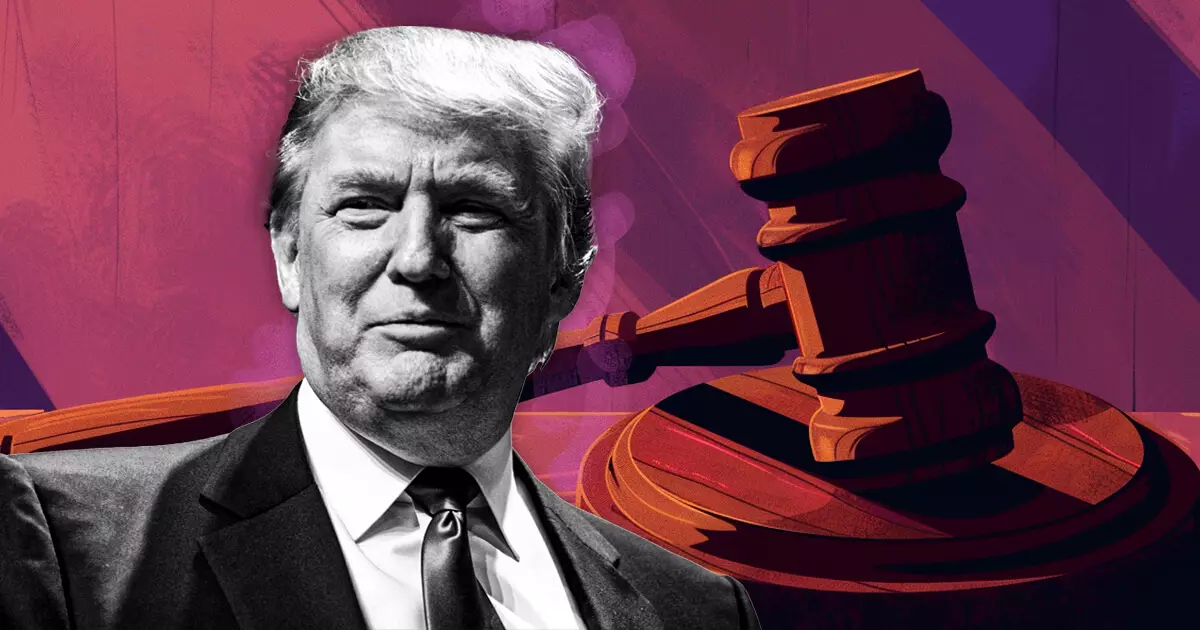In the evolving landscape of decentralized finance (DeFi), few projects have attracted as much attention as Donald Trump’s World Liberty Financial. As the former president ventures into the crypto space, he is met with the formidable regulations set forth by the U.S. Securities and Exchange Commission (SEC). Undoubtedly, the regulatory environment for cryptocurrencies in the United States is an intricate maze, one fraught with challenges that could hinder the progress of any venture, regardless of its political affiliations or the prominence of its backers.
SEC Commissioner Mark Uyeda recently shed light on the SEC’s regulatory approach, reaffirming that the commission is primarily a disclosure regulator rather than a merit regulator. This distinction is crucial for any participant in the crypto space, especially new entrants like World Liberty Financial. Uyeda emphasized that the SEC would mandate the same stringent transparency standards for Trump’s venture that apply to all cryptocurrency-related projects operating in the U.S. It signals that even high-profile connections will not circumvent the rigorous scrutiny imposed by regulatory frameworks.
This approach raises fundamental questions about accountability and transparency in the crypto sector. The focus on disclosure is meant to protect investors by ensuring they have access to essential information; however, the burden of navigating these regulatory obstacles falls heavily on the project’s legal teams and entrepreneurs. In light of this, Uyeda’s advice to Trump’s legal team to “hire good lawyers” highlights the necessity of robust legal representation in a landscape where compliance is complex and often vague.
The political dimension of Trump’s foray into DeFi cannot be overlooked. The current partisan rift in U.S. politics casts a long shadow over prospective projects, with speculation that the Democratic party may intensify scrutiny on World Liberty Financial, given Trump’s controversial stature. This political backdrop not only complicates the venture’s regulatory journey but also potentially influences investor sentiment and trust.
Bias in regulatory oversight could also become a significant concern, as crypto regulations historically navigate waters rife with political influence and economic interests. The SEC’s role in this context is critical, yet the perception of fairness and impartiality could be jeopardized by partisan pressures.
Throughout this ongoing debate, the SEC’s perceived lack of clarity in its regulatory framework has generated significant frustration among industry players. Uyeda himself has voiced concerns over this ambiguity, warning that a convoluted regulatory landscape could prompt innovation to migrate overseas. Such potential outcomes are worrisome, as the U.S. has historically been a leader in tech innovation and finance.
Moreover, fellow SEC Commissioner Hester Peirce echoed these sentiments, labeling the prevailing regulatory environment as “toxic” and cautioning that the current lack of decisive regulatory guidance is stifling progress in the American crypto market. These pronouncements from key figures within the SEC are indicative of a broader industry discontent, signaling an urgent need for reform and greater clarity in crypto regulations.
For World Liberty Financial, the road ahead is laden with uncertainty. Investors are exhibiting skepticism regarding the project’s viability in light of looming regulatory hurdles. While Trump’s ambitions to position the U.S. as a leader in the global cryptocurrency arena are commendable, they hinge significantly on the regulatory bodies’ willingness to establish a clear procedural framework.
As Trump embarks on this ambitious venture into the DeFi space, World Liberty Financial must contend with the dual challenges of political scrutiny and regulatory compliance. The need for clarity and supportive legislation in the cryptocurrency space has never been more pronounced. The success of any DeFi project, including Trump’s, will ultimately depend on how adeptly it can navigate the intersecting pressures of innovation, regulation, and political dynamics. The crypto industry stands at a pivotal juncture, and the outcomes of these regulatory battles will shape its future trajectory for years to come.

